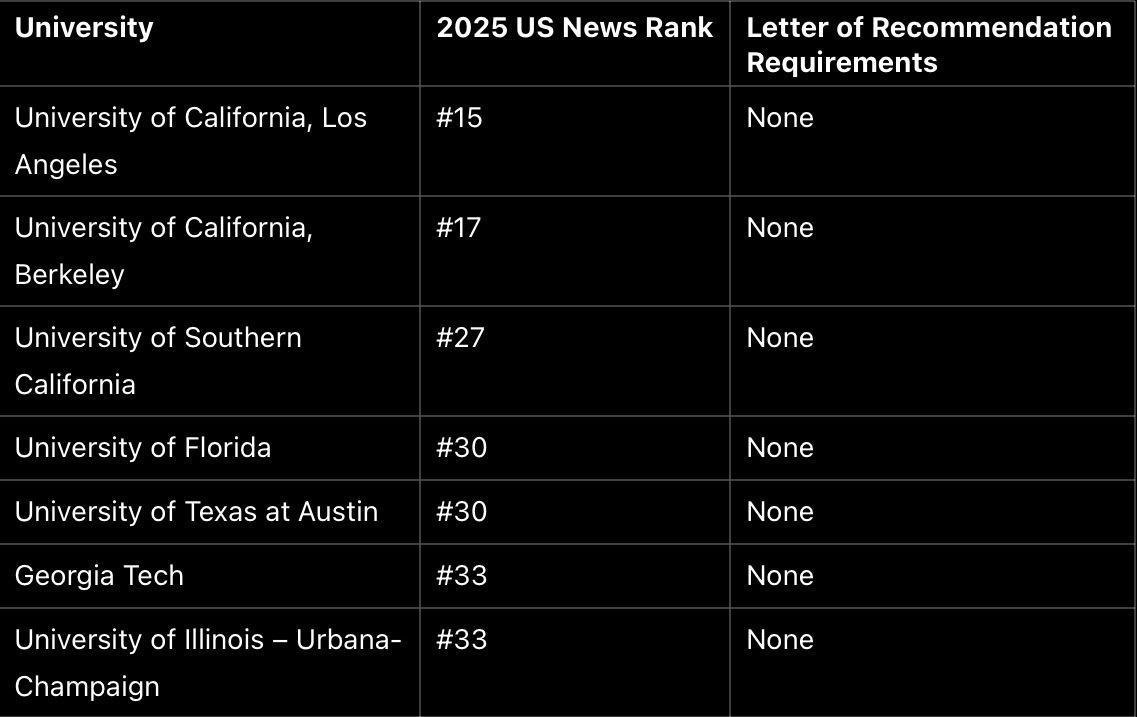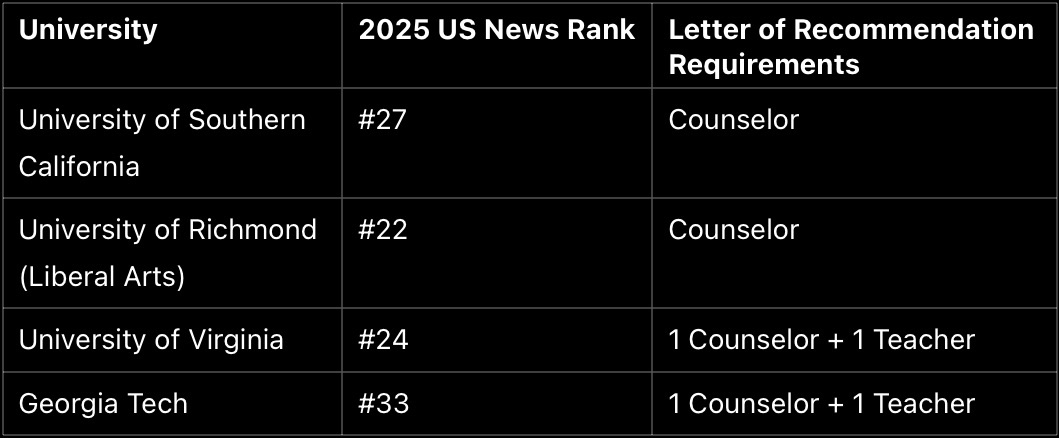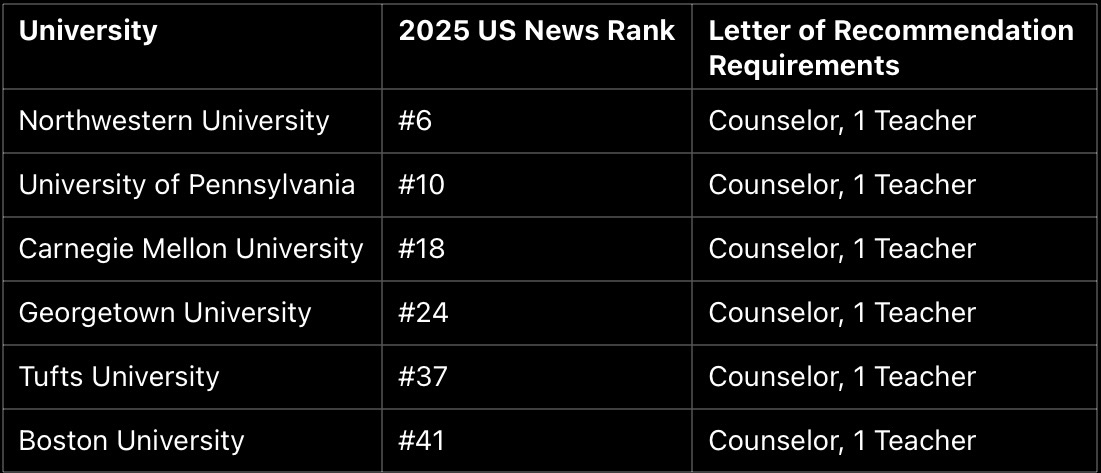How Many Recommendation Letters Do You Really Need for College Applications?
Ivy Brothers • 2025-02-16
How Many Letters of Recommendation Should You Submit for College?
When it comes to college applications, a common question among students and parents is: How many letters of recommendation should be submitted? The short answer is typically three—one from a school counselor and two from teachers. However, the longer answer depends on the specific college, its requirements, and a student’s unique circumstances. In most cases, colleges expect recommendations from two core subject teachers from junior year, along with a counselor’s letter. But there are exceptions to this rule.
Colleges That Do Not Require Letters of Recommendation
Some top universities, such as the University of California (UC) system, do not require or accept letters of recommendation as part of the initial application. However, in rare cases, they may request one later through an augmented review process if additional context is needed. This decision is often tied to the principles of equity and accessibility, as studies have shown that students from well-resourced high schools often have stronger recommendation letters due to smaller class sizes and closer relationships with teachers.
Below are some top-ranked universities that do not require letters of recommendation:
Colleges That Require One Letter of Recommendation
Some schools require only a single letter from a counselor, while others ask for both a counselor and one teacher recommendation. Below are a few examples:
Colleges That Require Two or More Letters of Recommendation
The majority of highly selective colleges require both a counselor recommendation and two teacher recommendations. These letters give admissions officers a well-rounded view of a student’s academic abilities and character.
Should You Submit Additional Letters of Recommendation?
There is a saying in college admissions: “The thicker the file, the thicker the student.”Submitting extra materials—such as unnecessary recommendation letters—can sometimes do more harm than good.
For instance, a letter from a high-profile individual (such as a senator or celebrity) who barely knows the student is unlikely to impress admissions officers. Instead, it may come across as an attempt to gain favor through connections rather than merit. However, if a student has conducted research with a professor or worked closely with a mentor in a specialized field, an additional letter from that individual could be beneficial.
How to Secure Strong Letters of Recommendation
Counselor Recommendations
Counselors typically write dozens (if not hundreds) of letters each year, making it crucial for students to provide them with meaningful information. Many schools distribute student and parent forms before junior year meetings, which serve as the foundation for the letter.
To ensure a strong recommendation, students should include:
• Specific anecdotes highlighting their intellectual curiosity and leadership skills
• Stories that demonstrate their passion for a particular field (e.g., science research, writing, or social activism)
• Any unique contributions they’ve made to their school or community
Providing counselors with detailed, personal insights will result in a more compelling and individualized letter.
Teacher Recommendations
Unlike counselors, not all teachers ask for background forms when writing letters of recommendation. However, students should take the initiative to remind teachers about their standout moments in class.
A strong teacher recommendation should highlight:
• Academic engagement and curiosity
• Contributions to class discussions and teamwork
• Significant projects, essays, or moments that demonstrate growth
Math, science, foreign language, and history teachers often write stronger recommendations than English teachers, as they are typically more receptive to student input.
Final Thoughts: The Strategy Behind Recommendation Letters
Letters of recommendation are a crucial piece of the college admissions puzzle. They provide insight into a student’s character, academic strengths, and potential beyond what grades and test scores reveal.
To maximize their impact, students should:
• Choose teachers who know them well and can provide specific anecdotes
• Supply counselors and teachers with helpful background information
• Avoid submitting extra letters unless they add significant value
With a thoughtful approach, recommendation letters can serve as powerful endorsements that set applicants apart in a competitive admissions landscape.
Visit our website: www.theivybrothers.com
Schedule a consultation: https://tally.so/r/3Edv7L
See More Posts
Ivy Brothers
Copyright © 2021 Ivy Brothers, Inc. All rights reserved.
Company
hello@theivybrothers.com






